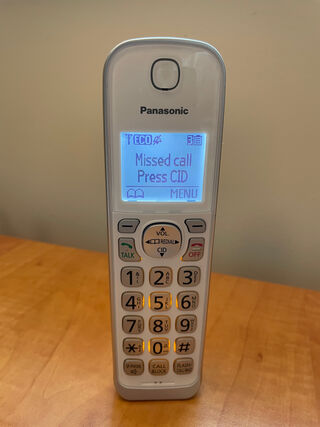Ethics and Morality
Why Do So Many Therapists Not Return Client Calls?
It takes courage to call for an appointment. Clients deserve a call back.
Posted May 11, 2021 Reviewed by Chloe Williams
Key points
- Prospective clients regularly complain that therapists do not return their calls.
- Although this may seem like a minor infraction, not returning client calls violates the American Psychological Association's Ethics Code.
- Not returning calls violates the Ethics Code in many ways, including risking harm to prospective clients and eroding trust in the profession.
At the end of a long day of private practice, I returned a call from a prospective psychotherapy client.
“Oh my God! Thank you for calling me back. I have called 10 different therapists over the past few weeks to ask about making an appointment. You’re the only one who has returned my call.”

This amazes me. Never called you back? None of them? It’s hard to believe, but clients complain about this regularly—and not just to me. You can find internet posts here, here, and here claiming that some therapists do not return initial phone calls. Ever.
Of course, there are periodically extenuating circumstances that prevent returning a prospective client’s call. I can think of a few times over the years when this has happened to me, but it is extremely rare. I understand how busy therapists are, especially when (as I do) they run their practices without secretarial support. It occasionally takes me a day or two to return calls when I have a lot on my plate, but I find time to do so.
Not Returning Calls Violates the Ethics Code
Although it might seem like a minor infraction to some therapists, consistently not returning client calls is not merely bad practice; it is also ethically dubious. By my estimation, it violates all six principles and at least one standard in the Ethics Code of the American Psychological Association (APA, 2017):
- Principle A (Beneficence and Nonmaleficence) holds that psychologists “take care to do no harm” and “seek to safeguard the welfare and rights of those with whom they interact professionally” (APA, 2017). Similarly, Standard 3.04 (Avoiding Harm) requires that psychologists “take reasonable steps to avoid harming their clients/patients” (APA, 2017). When therapists don’t return calls, they are failing to look out for prospective clients’ welfare and clearly risk harming them.
- Principle B (Fidelity and Responsibility) requires psychologists to “establish relationships of trust,” “uphold professional standards of conduct,” and “accept appropriate responsibility for their behavior” (APA, 2017). Again, returning calls is the very least one might expect from a psychologist. We should accept responsibility whenever we don’t return a call and then make amends. When we fail to do so, we erode trust in the profession and shirk one of our most basic responsibilities.
- Principle C (Integrity) maintains that “psychologists seek to promote accuracy, honesty, and truthfulness” (APA, 2017). Some therapists don’t return calls because they lack openings in their schedule. However, the honest thing to do in such instances is to call back prospective clients and tell them this. Avoiding such conversations because they are uncomfortable (or unprofitable) violates the principle of integrity.
- Principle D (Justice) demands that psychologists attend to issues of fairness and justice (APA, 2017). When therapists selectively return calls, they engage in behavior that is neither fair nor just. Many clients, unfamiliar with the ins and outs of the mental health system, struggle to find a therapist. Justice demands that we return calls and guide these clients. This means informing them when we lack openings and then providing basic guidance on how to find an available therapist.
- Principle E (Respect for People’s Rights and Dignity) holds that “psychologists respect the dignity and worth of all people” (APA, 2017). It takes courage to call a therapist. Treating people with dignity demands returning their calls. This is applicable regardless of why they are calling, but especially true when they are seeking therapy for deeply personal problems.
It’s an open secret that finding a psychotherapist is one of the most difficult parts of the psychotherapy process for clients. It never ceases to amaze me how appreciative people are when I return their calls. Rather than viewing this as going above and beyond the call of duty, it should be a minimal requirement for ethical practice. Vulnerable individuals seeking professional help always deserve a response.
References
American Psychological Association. (2017). Ethical principles of psychologists and code of conduct (2002, amended June 10, 2010, and January 1, 2017). https://www.apa.org/ethics/code


